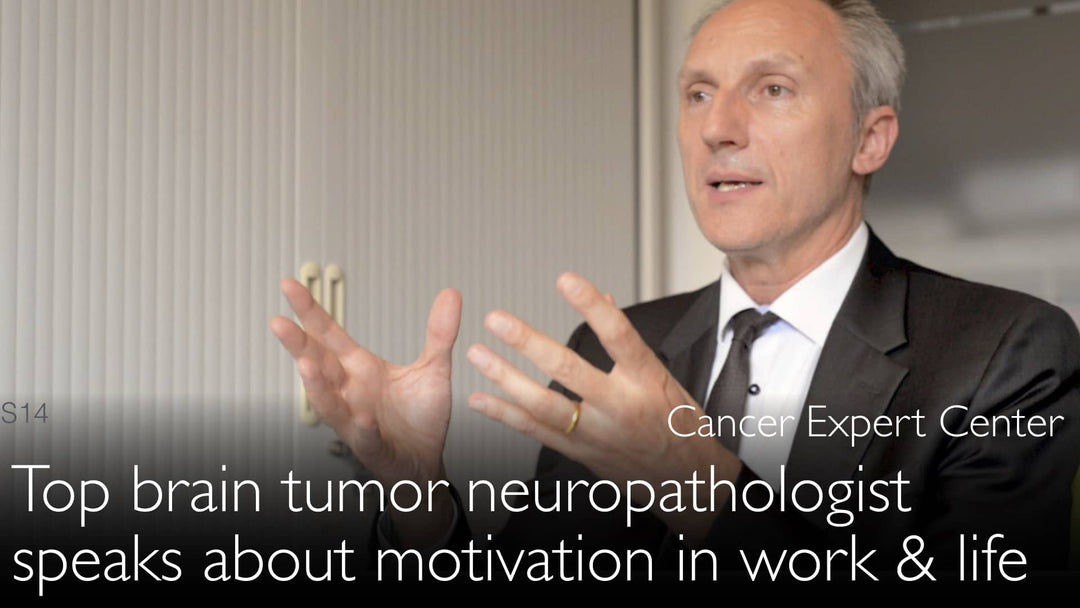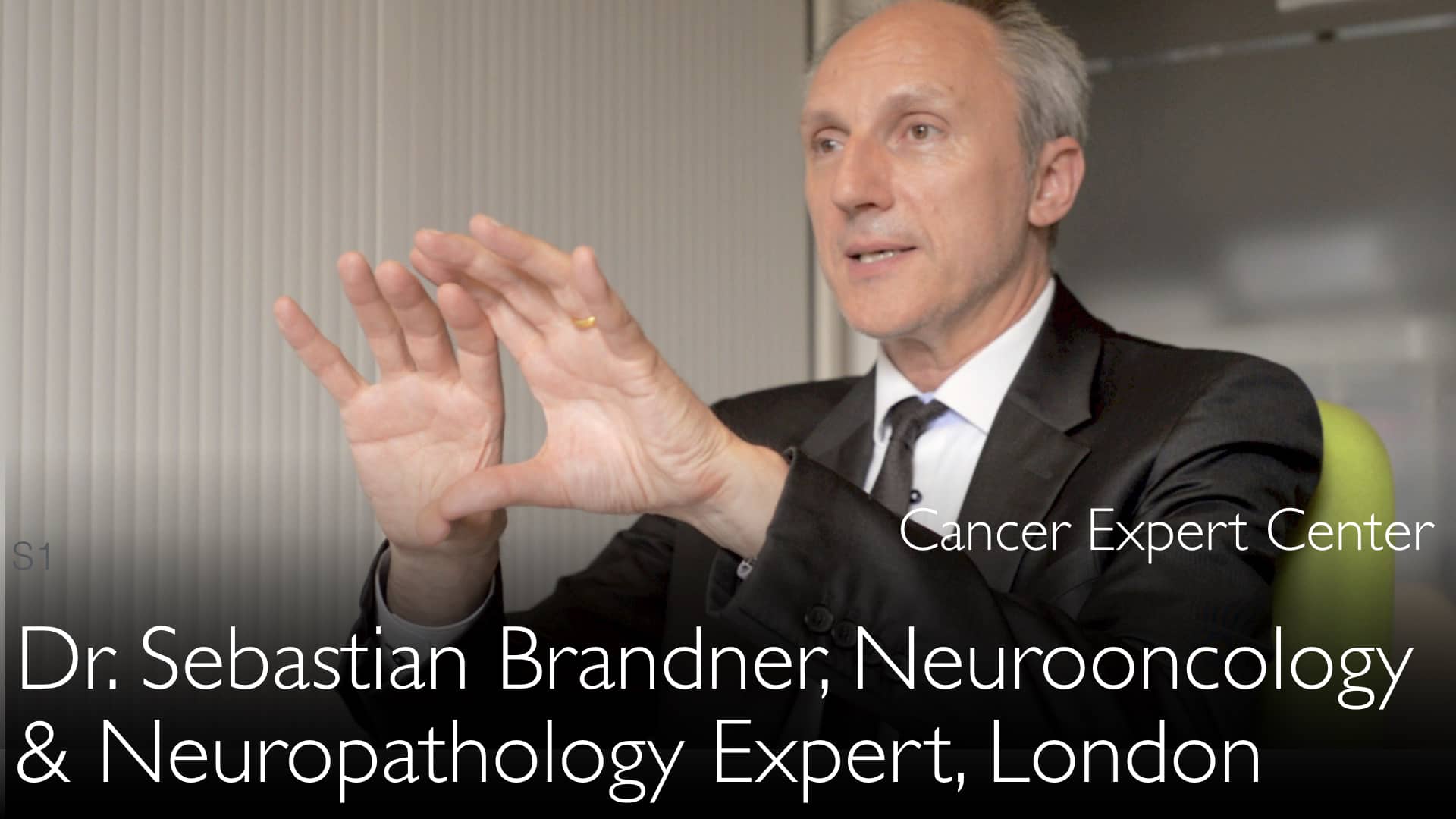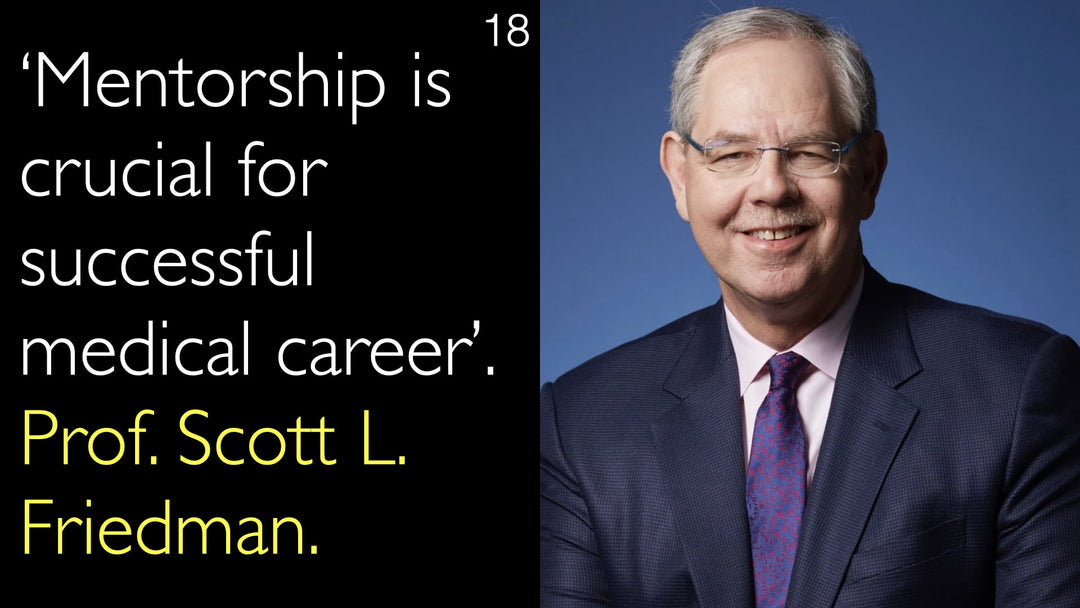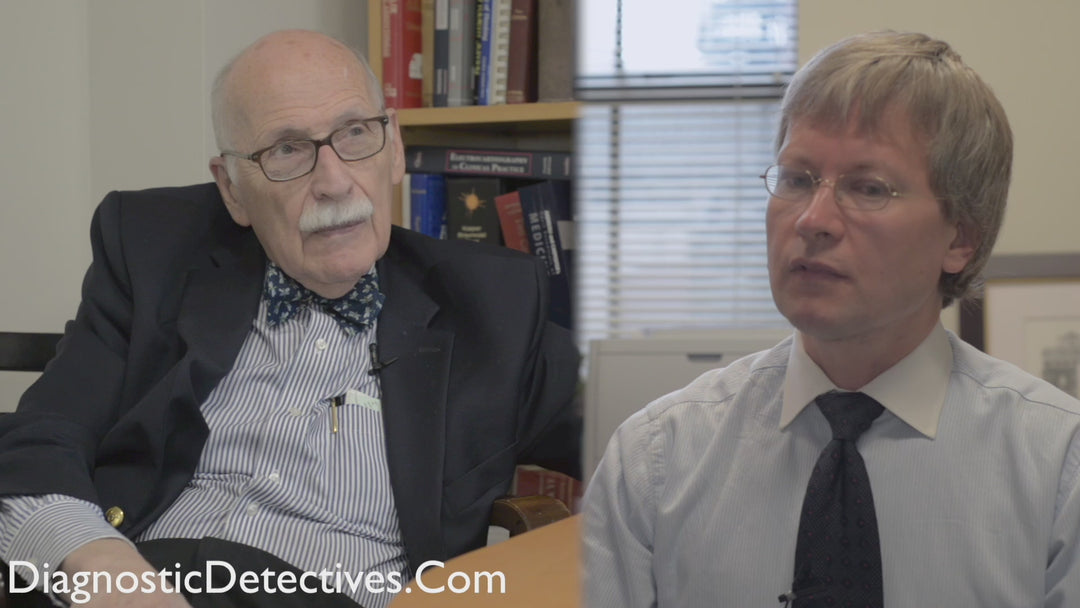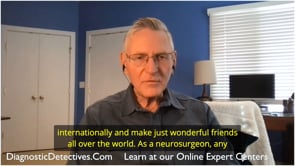Dr. Sebastian Brandner, MD, en førende ekspert i neuropatologi, forklarer, hvordan komplekse hjernesvulsttilfælde og uløste diagnostiske udfordringer motiverer hans kliniske og forskningsmæssige arbejde på et større akademisk medicinsk center. Professoren gennemgår gennembrud inden for molekylær klassifikation, omkostningseffektive løsninger i sundhedsvæsenet, forskning i neurodegeneration og vejledning af den næste generation af lægeforskere.
Løsning af komplekse hjerntumormysterier: En neuropatologs motivation
Spring til afsnit
- Komplekse hjerntumorstilfælde som motivation
- Udfordringer ved molekylær klassifikation i neuropatologi
- Innovative omkostningsløsninger til hjerntumordiagnostik
- Alzheimer- og neurodegenerationsforskning
- Vejledning af fremtidige læge-forskere
- Fordele ved akademiske medicinske centre
- Fuld transskription
Komplekse hjerntumorstilfælde som motivation
Dr. Sebastian Brandner finder daglig motivation i de 5% af udfordrende hjerntumorstilfælde, der ikke lader sig diagnosticere let på hans akademiske medicinske center. ”Det, der driver os, er nysgerrigheden – hvordan løser vi det medicinske problem?” forklarer neuropatologiprofessoren. I modsætning til rutinetilfælde kræver disse komplekse præsentationer innovative diagnostiske tilgange, hvilket holder det kliniske arbejde intellektuelt stimulerende.
Udfordringer ved molekylær klassifikation i neuropatologi
Selvom molekylær klassifikation har revolutioneret hjerntumordiagnostik, bemærker Dr. Sebastian Brandner, at den også har skabt nye diagnostiske dilemmaer. ”Vi støder nu på kombinationer af hjerntumormarkører, der ikke passer til etablerede mønstre,” fortæller han Dr. Anton Titov. Disse grænsetilfælde motiverer hans team til at udvikle yderligere tests, der kan afsløre dybere biologiske indsigter om tumoradfærd og potentielle behandlingsmål.
Innovative omkostningsløsninger til hjerntumordiagnostik
Dr. Brandner imødegår NHS’ finansielle pres gennem skalerbare løsninger som en hjerntumordiagnostisk startup, der oprindeligt blev finansieret af The Brain Tumor Charity. ”Ved at tiltrække flere henvisninger opnår vi stordriftsfordele, der reducerer omkostningerne, mens vi opretholder høj kvalitet,” forklarer han. Denne model har reduceret testomkostningerne betydeligt og samtidig udvidet adgangen til avanceret molekylær diagnostik for patienter i hele sundhedssystemet.
Alzheimer- og neurodegenerationsforskning
Ud over hjerntumorer undersøger Dr. Brandners team kritiske neurodegenerationsspørgsmål, herunder muligheden for iatrogen Alzheimertransmission. ”Vi undersøger, om medicinske procedurer kan overføre patogene proteiner,” siger han. Denne forskning bygger på deres nylige publikationer og kan potentielt ændre forståelsen af forebyggelse af neurodegenerative sygdomme.
Vejledning af fremtidige læge-forskere
Udvikling af unge talenter er en anden nøglemotivation for Dr. Brandner. ”Det er utroligt givende at se elever udvikle sig til klinisk fremragende akademikere,” fortæller han Dr. Anton Titov. Hans afdeling forfremmer lovende forskere til lektorstillinger og skaber derved en stig til næste generation af neuropatologieksperter.
Fordele ved akademiske medicinske centre
Dr. Sebastian Brandner understreger, hvordan hans centers samarbejdsorienterede miljø muliggør gennembrud. ”Uden vores tværfaglige teams og forskningsinfrastruktur ville intet af dette være muligt,” forklarer han. Denne akademiske hospitalsetting kombinerer komplekse casehenvisninger, banebrydende teknologi og muligheder for translationsforskning, hvilket driver innovation inden for neuropatologi og neurologi.
Fuld transskription
Dr. Anton Titov: Professor Sebastian Brandner, vi har en fantastisk diskussion om hjernesygdomme. Vi har talt om, hvordan hjerntumorer drager fordel af neuropatologiens og neurologiens videnskab. Men det er interessant at vide: Hvad driver dig i livet? Hvad får dig til at køre? Hvad gør dig beslutsom og succesrig i din forskning og kliniske arbejde?
Dr. Sebastian Brandner: For det første er det et meget interessant job, vi har her. Det er et stort akademisk sundhedsvidenskabeligt center og et stort henvisningshospital med masser af specialister, der arbejder omkring os. Jeg må sige, det bliver interessant, fordi vi er en del af et af disse center of excellence for hjerneforskning.
Dr. Sebastian Brandner: Vi forsker i neurodegeneration og hjerntumorer. Uden en ordentlig funktion af disse tilknyttede og associerede afdelinger ville al succes være umulig. Der er ingen mening i at komme på arbejde hver dag og kun skulle håndtere et lille antal kliniske tilfælde. Det er kedeligt at arbejde med små mængder og repetitive diagnoser.
Dr. Sebastian Brandner: Hvad vi ønsker at se, er interessante sygdomme og patienter, der fascinerer os hver dag. 5% af vores arbejde er nyt hver dag – problematiske kliniske tilfælde og uløste cases. Det driver os. Nysgerrigheden motiverer os.
Dr. Sebastian Brandner: Hvordan kan vi løse det medicinske problem? Tag den molekylære klassifikation af hjerntumorer. Vi så mange problemer med diagnosen, men nu indser vi, at vi har skabt nogle nye udfordringer. Disse problemer ligger i udkanten af de klart afgrænsede diagnoser. Nu finder vi nye kombinationer af hjerntumormarkører, der ikke synes at give mening. Hjerntumormarkører passer nogle gange ikke ind i det diagnostiske landskab. Så det driver os.
Dr. Sebastian Brandner: Hvad er baggrunden for det hjerntumorproblem? Derfor bruger vi yderligere diagnostiske tests for at finde ud af mere om en hjerntumor.
Dr. Sebastian Brandner: Andre ting, der driver mig, især i min rolle som afdelingsleder, er de finansielle udfordringer i NHS. På vores hospital skal vi spare, men vi skal være kloge i forhold til hvordan. Vi kan spare ved at tiltrække flere henvisninger af hjerntumorpatienter. Dette giver os mulighed for at opnå stordriftsfordele.
Dr. Sebastian Brandner: Det er en vigtig faktor, der giver os mulighed for at investere og skære priserne ned. Dette er fantastisk for NHS, meget nyttigt for patienter og velgørenhedsorganisationer som The Brain Tumor Charity, som finansierede en startup med £75,000 for otte eller ni år siden for at etablere denne molekylære diagnostiske test. Målet var at sikre, at indtægter fra den nye hjerntumordiagnostiske test dækker udgifterne til personale og udstyr.
Dr. Sebastian Brandner: Så det handler også om økonomi. Det er den slags ting, der driver mig. To gange om året bliver jeg indkaldt til min kliniske direktør. Han siger: ”Hvor er besparelserne? Kan du demonstrere, at du kan skære omkostningerne ned med 10% her og der?” Det kan være udfordrende. Jeg synes, en hospitalsdirektør ikke skal være for fokuseret på besparelser, fordi man skal holde center of excellence kørende.
Dr. Sebastian Brandner: Men det er udfordringerne, der holder mig vågen om natten. Den tredje udfordring er at få forskningsbevillinger til at fortsætte hjerntumorforskning. Vi skal stille de spørgsmål, jeg virkelig er interesseret i. Vi skal finde nye hjerntumorbimarkører.
Dr. Sebastian Brandner: Hvordan kan vi finde hjerntumormarkøren, der er prædiktiv for en bestemt hjerntumoroverlevelse? Vi skal forsk i neurodegeneration. Vi skal finde svar på det spørgsmål, som vores nylige publikation har åbnet for nu. Er der en anden måde at overføre proteinsygdomme på? Er visse Alzheimerpatienter i risiko? Er det en medicinsk procedure, der kan overføre Alzheimers sygdom? Hvilke andre medicinske procedurer kan overføre Alzheimers sygdom? Hvordan kan vi faktisk finde en måde at opdage Alzheimers sygdom transmission?
Dr. Sebastian Brandner: Alle disse spørgsmål holder os vågne om natten. Det er disse konstellationer, der får mig til at ville komme her. Jeg vil opnå noget. Jeg vil gerne have et fantastisk team af kolleger omkring mig. Vi har elever, der leverer en masse arbejde og fantastiske hjerntumorforskningsresultater. Jeg er glad for at forfremme elever til lektorstillinger.
Dr. Sebastian Brandner: Jeg ser unge læger vokse, elever blive klinisk fremragende akademikere. Dette er miljøet, hvor dette er muligt.
Dr. Anton Titov: Hvad jeg hører, er at det er en del af udfordringen. Din interesse er at være en medicinsk detektiv på patienternes vegne. Du undersøger, hvad der ikke er opdaget, hvad der ikke er på overfladen, hvad der synes at være en stor udfordring. Det er en del af din tilværelse som medicinsk detektiv.
Dr. Sebastian Brandner: Ja!
Dr. Anton Titov: Professor Sebastian Brandner, mange tak for denne samtale om hjerntumorer og større aspekter af neurologi. Jeg sætter stor pris på det. Jeg er sikker på, at det vil være meget interessant for seere over hele verden. Tak for interviewet!
Dr. Sebastian Brandner: Tak fordi I kom!


